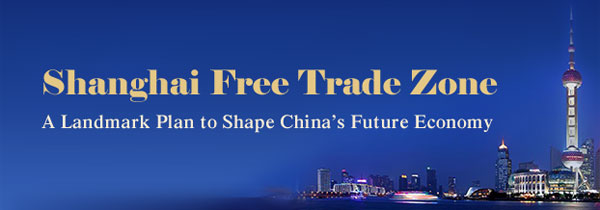FTZ viewed with hope, skepticism
 0 Comment(s)
0 Comment(s) Print
Print E-mail China Daily, October 30, 2013
E-mail China Daily, October 30, 2013
More than 90 policies cover five major economic areas. There's a 10-page "negative list" putting 18 major sectors (with 1,067 subcategories) of business off-limits to foreign investors.
The list also has 190 special regulations, which outline additional sectors closed to foreign investors.
Welcome to the China (Shanghai) Pilot Free Trade Zone, a 29-square-kilometer project launched late last month that's raising expectations - and doubts - within the nation and overseas.
The FTZ is frequently likened to the Shenzhen Special Economic Zone, which since its establishment in 1980 has boosted manufacturing and exports and attracted overseas investments. Some predict the FTZ will threaten Hong Kong's position as an established financial hub.
"If we think about the Shanghai free trade zone as a test market - as Shenzhen was - so what's learned in Shanghai can be rolled out to the rest of the country, that would be a very big deal, that would be truly a ‘reform and opening up' 2.0," said Carlos Gutierrez.
He's the former US secretary of commerce, now a vice-chairman of the Albright Stonebridge Group, a global strategy firm led by Madeleine Albright, the former US secretary of state.
"I don't think it's unrealistic to have high expectations," Gutierrez said in an interview with China Daily. "China has always exceeded expectations."
Located on the outskirts of the coastal metropolis of more than 23 million people, Shanghai's FTZ is expected to explore ways to reduce government intervention and open up the world's second-largest economy to international investment.
"This is in line with global economic trends and reflects a more active strategy of opening up," said Commerce Minister Gao Hucheng at the zone's inauguration ceremony.
The timing of the zone's formation - just before the Third Plenum of the 18th Central Committee of the Communist Party of China - also has been widely discussed.
Experts believe that the zone is a testing ground for policies and procedures that will expand into other parts of the country. They also believe that the FTZ represents a commitment by the country's new leadership to deepening market-oriented reforms and boosting the economy.
"In the buildup to the Party's Third Plenum, there has been much speculation over the policy priorities and reform initiatives," said James Sinclair, managing partner of InterChina, a Shanghai-based strategy and merger-and-acquisition advisory firm that focuses on China.
Exclusive coverage on Shanghai's FTZ:







Go to Forum >>0 Comment(s)